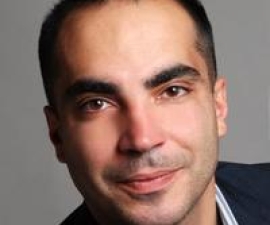

Research Bio
Francesco Borrelli received his ‘Laurea' degree from the University of Naples Federico II', Italy in 1998, and his PhD from the Automatic Control Laboratory at ETH-Zurich, Switzerland in 2002. He is currently a Professor at the Department of Mechanical Engineering at the University of California, Berkeley, USA, where he conducts research in the field of predictive control.
He has received several awards for his contributions to the predictive control field,, including:
- The 2009 NSF CAREER Award,
- The 2012 IEEE Control System Technology Award,
- Election as IEEE Fellow in 2016,
- The 2017 Industrial Achievement Award by the International Federation of Automatic Control (IFAC) Council,
- The 2025 Control Practice Award from the American Automatic Control Council, in recognition of transformative contributions to predictive control theory and practice, driving advancements in energy-efficient automotive powertrains, optimized solar energy, and sustainable public transportation.
Professor Borrelli industrial activities focus on the application of predictive control in self-driving vehicles, utility scale solar power plants, automotive control systems, and building energy efficiency control. He was the founder and CTO of BrightBox Technologies Inc, a company focused on cloud-computing optimization for autonomous systems, and was the co-director of the Hyundai Center of Excellence in Integrated Vehicle Safety Systems and Control at UC Berkeley. He wa also the founder and CTO of WideSense Inc., a company focused on E-Mobility.
In 2025, he was appointed Chief AI and Robotics Officer at Nextracker, where he leads the company’s global AI and robotics strategy. In this role, he oversees the integration of AI, machine learning, and advanced robotics into Nextracker’s products and solutions, supporting global scalability and long-term innovation. Nextracker Inc. is a publicly traded solar tracker manufacturer listed on the NASDAQ, specializing in intelligent solar tracking systems for utility-scale and distributed generation projects. As of 2025, Nextracker's global manufacturing capacity reached approximately 1 GW per week.
Professor Borrelli's research interests include model predictive control, learning, and their application to robotics, transportation, and energy control systems.
Research Expertise and Interest
automotive control systems, distributed and robust constrained control, manufacturing control systems, energy efficient buildings, model predictive control
